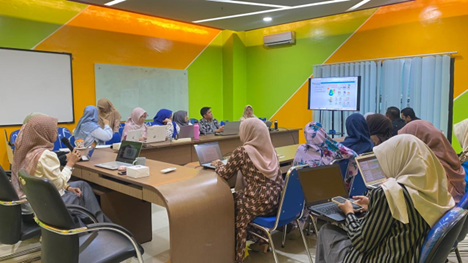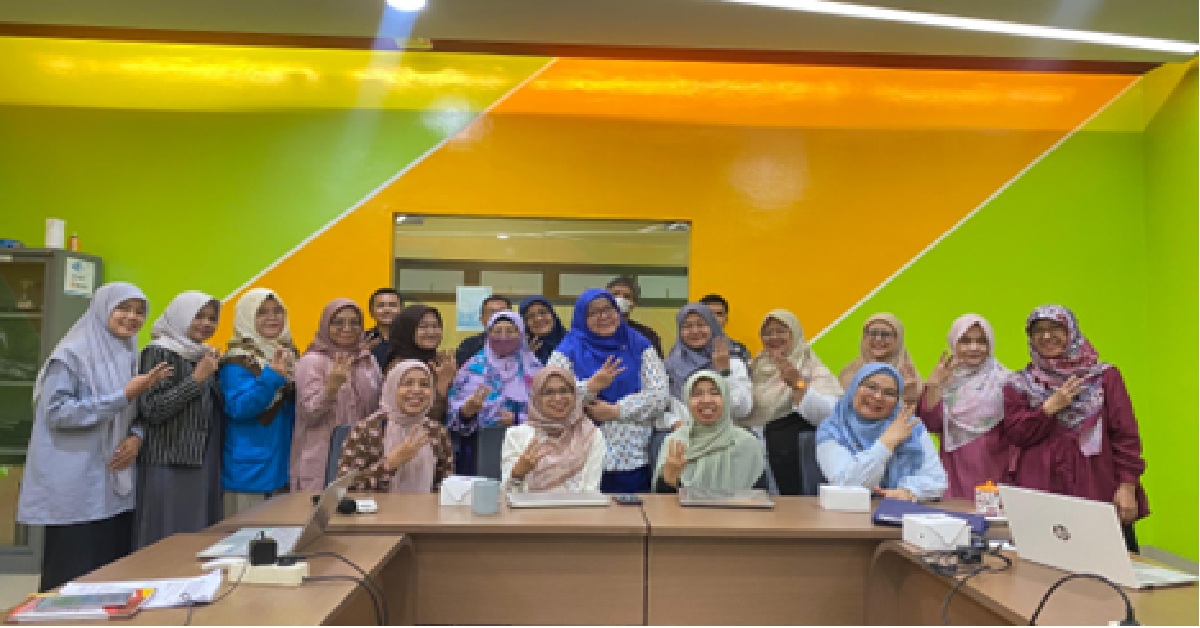The Islamic Banking Doctoral Program held an International Visiting Lecture: Green Banking and Sustainable Finance with Assoc. Prof. Irina Safitri Zen (IIUM)
Jakarta, November 4, 2025 — The Faculty of Economics and Business (FEB) of UIN Syarif Hidayatullah Jakarta once again demonstrated its commitment to academic internationalization by holding an International Visiting Lecture themed "Green Banking and Sustainable Finance."
This event featured Assoc. Prof. Ts. Dr. Irina Safitri Zen, Chief Sustainability Officer and lecturer in the Department of Urban and Regional Planning, Kulliyyah of Architecture and Environmental Design, International Islamic University Malaysia (IIUM).
The visiting lecture, held on the 3rd floor of the FEB UIN Jakarta Building, was attended by students and lecturers from the Islamic Banking Doctoral Program (PDPS) specifically and FEB UIN Jakarta in general. It served as the official introduction to the new Green Banking and Sustainable Finance course in the 2025 Doctoral Curriculum, based on Outcome-Based Education (OBE).
In her remarks, Prof. Nur Hidayah, Ph.D., Head of the Islamic Banking Doctoral Study Program, emphasized the importance of internalizing sustainability values into the Islamic financial system.
"We are witnessing a global paradigm shift from maximizing shareholders' value to maximizing stakeholders' value. This is the essence of the ESG (Environmental, Social, and Governance) transition, which aligns with the objectives of maqasid al-shariah (the principles of Islamic principles) in maintaining a balance between profit, social justice, and environmental sustainability," said Prof. Nur Hidayah.
She added that this international visiting lecture presents an important momentum for synergizing the Sustainable Development Goals (SDGs) agenda with curriculum development, dissertation research, and cross-university collaboration in Asia and Africa.
In her presentation, titled "Green Finance Sustainability: Financing the Future for a Sustainable World," Assoc. Prof. Irina emphasized that green finance is a strategic instrument in realizing a low-carbon and inclusive economic future. She said: "Green finance plays a pivotal role in combating climate change and achieving the United Nations Sustainable Development Goals (SDGs). It reduces financial risks associated with environmental threats, encourages innovation, and builds resilience against climate-related impacts." She further explained the three main pillars of sustainability—environmental, social, and governance (ESG)—that must be integrated into banking strategies and public policies. "ESG principles foster transparency, ethics, and accountability, ensuring that every financial decision contributes not only to profit, but also to people and the planet," she said.

Assoc. Prof. Irina also presented various policy examples from Malaysia, such as the Green Technology Financing Scheme (GTFS 4.0) and Green Procurement Policies, as good practices in implementing green financing that can serve as references for Indonesia in strengthening its low-carbon economy policies.
Interestingly, Prof. Irina highlighted the role of universities in supporting the green economy ecosystem and ESG literacy. He stated: "Universities play a crucial role in supporting the sustainability of the green economy and green finance — through research, education, and campus operations that model responsible resource management."
This message served as a profound reflection for the Faculty of Economics and Business (FEB) UIN Jakarta in strengthening its contribution as a university that not only produces academics but also agents of change in sustainable development.
Through this activity, FEB UIN Jakarta emphasized its role as a center of knowledge that adapts to global challenges. This visiting lecture not only broadened academic horizons but also marked FEB's commitment to providing doctoral education based on ESG, SDGs, and maqasid al-shariah (the Islamic principles of sharia) that align with the national policy direction of Green Economy Indonesia 2045.
Thus, the theme of Green Banking and Sustainable Finance is no longer mere discourse, but has become an academic framework and concrete action in building a fair, inclusive, and sustainable Islamic financial system. (Contributor: Nur Hidayah)

